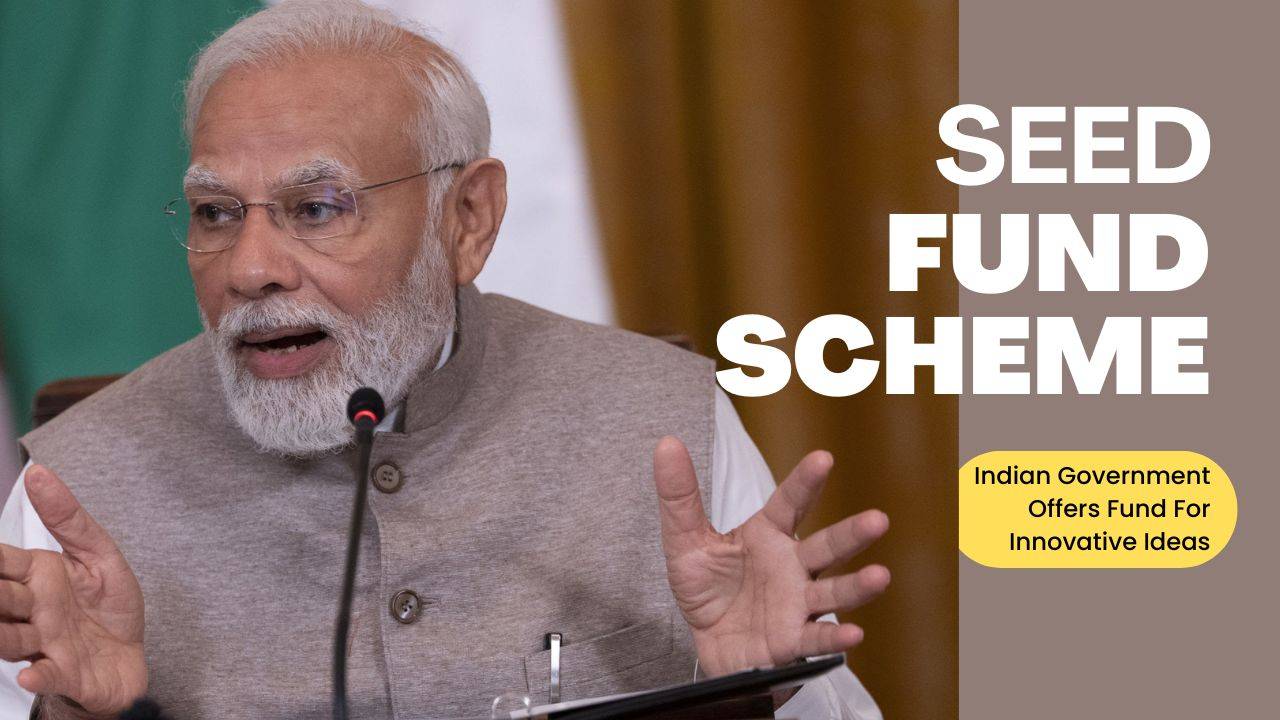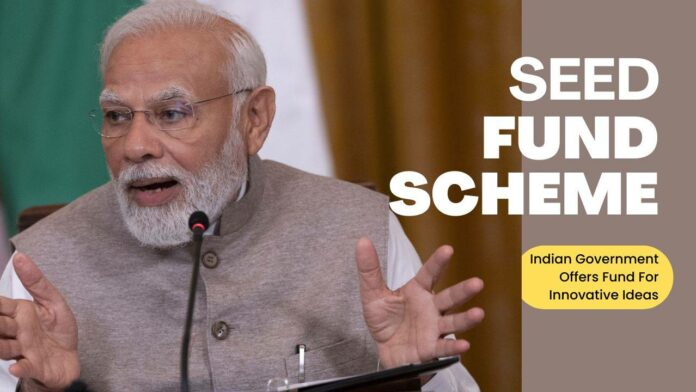-
Home -
Blog
The government introduced the Startup India Seed Fund Scheme to enable startups to get seed funding to test the feasibility of their innovative concepts.

The early stages of launching a startup require easy access to funding, which is usually only available from angel investors or venture capital firms after a proof of concept is developed. Banks typically offer loans based on tangible assets, making seed financing important for testing innovative ideas.
Who started Startup India Seed Fund Scheme?
To address the need to fund innovative ideas, the Indian government introduced the Startup India Seed Fund Scheme, announced by Prime Minister Modi in January 2021. DPIIT established a Rs 945 crore fund to support start-ups, benefiting 3,600 entrepreneurs through 300 incubators. four years. An expert advisory committee oversees the implementation of the initiative.
What is the purpose of this scheme?
gave Startup India Seed Fund Scheme It aims to provide financial support to startups to develop their proof of concept, including building prototypes, testing products, entering the market, and commercializing their offerings. The goal is to help startups grow to a stage where they can easily get funding from angel investors and venture capital firms, while also removing barriers to getting loans from banks.
How does money get from government to startups?
Initially, the seed fund amount is sanctioned by DPIIT and later channeled through the Expert Advisory Committee. After that, these funds are channeled to incubators that have been operating for at least 2-3 years. These incubators then disburse funds to startups recognized by DPIIT, provided they are not more than 2 years old.
Who is Eligible for Seed Fund Scheme?
-
Eligibility for this fund is limited to startups recognized by DPIIT that are not more than 2 years old at the time of application. To get recognition of DPIIT, one can click on Startups. The link.
-
A start-up must have a viable business concept aimed at developing a marketable product or service, which is fundamental to commercialization and has substantial growth potential.
-
It is important that startups use technology within their product, service, business model, distribution method or methodology to effectively solve problems.
-
Social Impact, Waste Management, Water Management, Financial Inclusion, Education, Agriculture, Food Processing, Biotechnology, Healthcare, Energy, Mobility, Defence, Space, Railways, Oil & Gas, and Textiles Preference will be given to working startups. .
-
The startup must not have received financial assistance of more than Rs 10 lakh from any central or state government scheme, including competition winning funds or subsidized workspace, founder’s monthly allowance, lab access, and prototyping facilities e.g. Apart from some advantages.
-
Indian promoters must own at least 51 percent of the startup’s shares.
-
As per the guidelines of the scheme, startups can get one-time support in the form of grant funding, loans, or convertible debentures.
First Published: 30 Sep 2023, 14:11 IST
Take the quiz.
Show your support for agrijournalism.
Dear Patron, Thank you for being our reader. Readers like you are our inspiration to advance agri-journalism. We need your support to continue delivering quality agri journalism and reach farmers and people in every corner of rural India.
Every contribution is valuable for our future.
